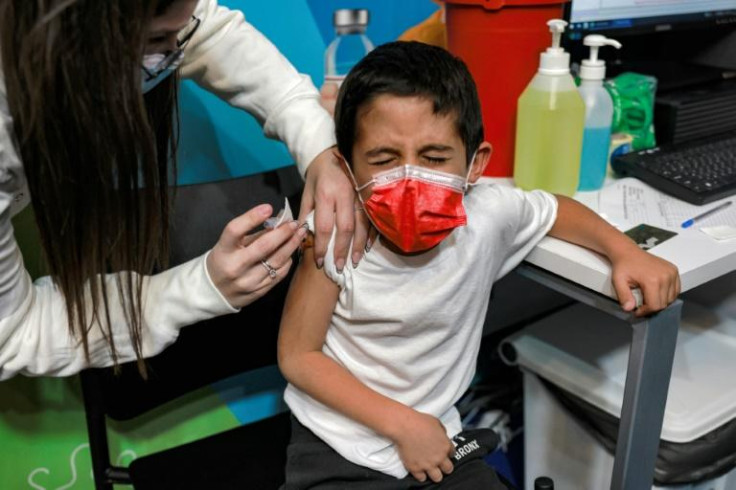
Health officials in the United Kingdom have issued an urgent warning about the increasing prevalence of Long COVID, particularly among children, as hospitals witness a surge in related cases.
Concerns are mounting over the long-term impacts of the virus, even in those who initially experienced mild or asymptomatic infections.
In recent weeks, hospitals across the country have reported a notable rise in the number of Long Covid cases, with a significant proportion affecting children and adolescents.
Experts express concerns that a minimum of 100,000 individuals, encompassing both adults and children, may be susceptible to developing Long COVID in the upcoming weeks.
The surge in coronavirus cases in the lead-up to Christmas is evident, with recent hospital statistics revealing a notable 20 per cent increase in daily admissions during the week leading to December 22.
Medical experts are stressing the need for heightened awareness and vigilance, urging parents and caregivers to familiarise themselves with potential symptoms.
Long Covid, also known as post-acute sequelae of SARS-CoV-2 infection (PASC), refers to persistent symptoms that linger for weeks or months after the acute phase of the illness has resolved.
While initially associated more with severe adult cases, recent data indicates an alarming increase in Long COVID cases among younger populations.
Professor Steve Griffin, a scholar specialising in Cancer Virology at the University of Leeds, remarked: "What is particularly distressing is that this will encompass children and young individuals, a demographic frequently neglected in the context of this formidable disease, and their vulnerability is exacerbated by the complete absence of adequate precautions in educational institutions."
Although the highly contagious JN.1 subvariant currently spreading across the UK is not believed to be more severe than other recent COVID variants, experts assert that diminished vaccination rates over the past two years have heightened the likelihood of severe symptoms in individuals upon contracting the virus.
The National Health Service (NHS) has ramped up efforts to disseminate information and resources to help parents identify potential Long COVID symptoms in their children.
A spokesperson for the NHS emphasised the importance of seeking medical advice promptly if any concerning symptoms arise.
Professor Christina Pagel, a healthcare data scientist at University College London, has put forth a series of cautious projections regarding the number of individuals who may experience Long COVID due to the ongoing wave.
In an interview with i News, she stated, "I anticipate it will be in the tens of thousands for sure, but there's a significant possibility it could reach one to two hundred thousand."
She approximates that presently, there is a two per cent likelihood of developing Long COVID following an infection.
However, she emphasises: "It's a very rough estimate, and there's considerable variability based on factors such as age, gender, vaccination history, and other health conditions."
She added: "My personal feeling is that this wave will be as high as the large waves of 2022, and possibly even the highest so far, in terms of infections, but that hospitalisations with COVID will not reach the highs of 2022 – and will be nowhere near the highs of the pre-vaccination COVID waves."
As the nation grapples with this surge in Long COVID cases, researchers are intensifying efforts to understand the underlying mechanisms and risk factors contributing to prolonged symptoms, particularly in younger age groups.
Ongoing studies aim to shed light on the impact of Long COVID on children's physical and mental well-being.
Parents are encouraged to remain vigilant and consult healthcare professionals if they observe any persistent symptoms in their children.
Prior to the availability of vaccines, there was a general consensus that approximately 10 per cent of all COVID-19 infections resulted in Long COVID, characterised by symptoms persisting for more than three months after the initial infection.
However, researchers now assert that the likelihood of developing Long COVID is diminished compared to previous periods, given the virus's reduced severity and the vaccine's efficacy in lowering the risk of severe infections.
With the evolving nature of the pandemic, staying informed and proactive is crucial in mitigating the long-term effects of COVID-19, particularly in the vulnerable paediatric population.







